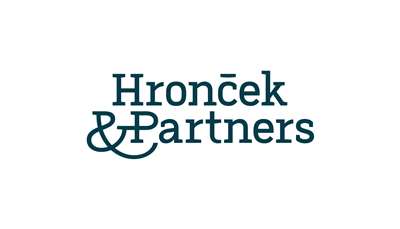
A currently hot topic in connection with the ongoing unjustified and unprovoked Russian military aggression against Ukraine and its political consequences is the expansion of the list of individuals on the European Union (hereinafter also referred to as the “EU”) sanctions lists and the (non-)implementation of EU sanctions in some countries orother sanctions lists. The consequences for Russian owners (not only) of Slovak commercial companies or their ultimate beneficiaries include, among other things, denial of access to funds from banking institutions and the public budget. However, sanctioning the owners of these companies in practice brings considerable complications. Currently, the ownership structures of legal entities are relatively complex and not always transparent. Identifying them requires expert and repeated research, as ownership structures are not fixed and can evolve quite dynamically. The situation is evolving every day, with more and more people being added to sanctions lists, and state institutions have often not yet taken the first step against those sanctioned. If they were to freeze the “assets” of such entities despite the unclear ownership structure, they could subsequently face legal consequences. Individuals on the sanctions list have the right to judicial protection, so they can appeal to the courts after sanctions have been imposed on them. A person included in the so-called sanctions list who objects to their inclusion on the list may request to be removed from the list of sanctioned persons by the United Nations Security Council (“UNSC”) committees, the Office of the United Nations Ombudsman and Mediation Services, or the relevant European Union working group.
For a better understanding of this issue, it is necessary to explain the very nature of a sanctions list. The European Union sanctions list is a consolidated list of countries, entities and individuals involved or suspected of money laundering or terrorist financing, subject to economic sanctions by the EU. The lists of sanctioned persons are included in the annexes to UN Security Council resolutions and in the annexes to individual EU regulations, which oblige all financial institutions in the Member States to immediately freeze the financial and economic resources of the sanctioned persons.
In the Slovak Republic, a national mechanism has been established in the area of administrative enforcement of international sanctions in accordance with UN Security Council resolutions, which ensures the immediate transposition of UN Security Council sanctions – the freezing of assets of sanctioned persons without delay – through legislation on the implementation of international sanctions, Act No. 289/2016 Coll. on the implementation of international sanctions and amending Act No. 566/2001 Coll. on securities and investment services and amending certain acts (Securities Act), as amended (hereinafter referred to as the “ZOVMS”).
EU sanctions are adopted by transposing UN Security Council sanctions resolutions, whereby, once a UN Security Council resolution has been issued, it must be implemented as soon as possible in an EU regulation. However, the EU also applies its own autonomous sanctions in accordance with its foreign policy objectives towards certain countries and persons who are citizens of EU Member States. Economic sanctions are an essential part of the EU's common foreign and security policy and are used as part of international efforts to combat money laundering, terrorist financing and other financial crimes. To this end, a list of EU sanctions is compiled, which must be incorporated into the AML/CFT programs of financial institutions.
EU sanctions may include:
- freezing of financial assets or economic resources, prohibition of financial transactions
- restrictions on market access, trade, investment or technical assistance
- arms embargo
- restrictions on land, air or sea connections
- a ban on athletes participating in events in the sanctioned country
- restrictions on entry into the territory of the country
- suspension of cooperation with a third country
EU sanctions are adopted by the European Council. Each member of the Council must agree unanimously on the sanctions before legislation can be prepared and enter into force. Some sanctions, such as the freezing of financial assets, are implemented directly by the EU administration. Other types of EU sanctions, such as arms embargoes, are implemented by the Member States themselves through national legislation, which means that the sanctions must be transposed into national law. EU sanctions apply to financial institutions and individuals within the jurisdiction of the European Union. The sanctions also apply to EU citizens operating outside the EU.
According to an analysis by Dun & Bradstreet, Russian and Ukrainian entrepreneurs own 3,284 companies in Slovakia, of which 66% are Ukrainian companies with a share capital of over €40 million and the remaining 34% are controlled by Russian entrepreneurs, with cumulative assets exceeding EUR 70 million. These companies employ several employees and are also linked to other suppliers with additional employees. Foreign companies owned by Russian owners admit to significant cash flow problems and lower than optimal capital. At the same time, government institutions are discussing whether to ban Russian-owned companies from participating in public tenders and from receiving investment services or subsidies. Companies registered in Slovakia that have Russian owners can send their profits through third countries to Russia, and part of these profits may then end up directly in the Russian budget, which is currently financing the war, in the form of taxes or various other fees.
In connection with the events in Ukraine and the adoption of sanctions against Russia, we would like to draw your attention to the restrictions on trading with persons on the sanctions list, i.e. the obligation under Section 10(1)(d) of Act No. 297/2008 Coll. on the prevention of money laundering and terrorist financing and on amendments to certain acts (hereinafter referred to as the “AML Act”):
“The basic due diligence of the obliged entity in relation to the client includes
d) determining whether the client or the ultimate beneficial owner of the client is a politically exposed person or a sanctioned person,”.
It is also necessary to mention Section 4(1) and (2)(l) and (m) of the AML Act, according to which:
"An unusual business transaction is a legal act or other act that indicates that its execution may result in the legalization or financing of terrorism.
An unusual business transaction is, in particular, a transaction:
...l) where there is a reasonable assumption that the client or the ultimate beneficiary is a person subject to international sanctions under a special regulation, or a person who may be related to that person, or
m) where there is a reasonable assumption that its subject matter is or is intended to be a good or service that may be related to a good or service subject to international sanctions under a special regulation."
You can check whether a person or company is on the sanctions list on this website, where you will find a legally non-binding but up-to-date list of EU and UN sanctions, divided by topic, country, type and entity.
Further lists of sanctioned persons can be found at the following links:
- https://sanctionssearch.ofac.treas.gov/
- https://www.gov.uk/government/publications/financial-sanctions-consolidated-list-of-targets/consolidated-list-of-targets
The transposition of European lists into reality is complicated by the fact that, according to experts, the Russian elite have most of their assets hidden in offshore companies, businesses, and real estate in Europe and the US. Offshoring is a business practice whereby a commercial company is established outside the country in which it operates. In such cases, the entity is registered abroad. In reality, the list of sanctioned persons would therefore be much longer than it currently is.
The consequences of the war in Ukraine are currently also being felt by companies whose owners are not on the so-called sanctions list but are Russian citizens. In view of the above, it is clear that any company whose end user is included in the list of sanctioned persons will feel the consequences in the near future, whether in the form of frozen financial assets, access to the market, or the non-provision of subsidies. However, it is certainly not possible to consider the collapse of all companies. This would put the global industry at risk of an economic crisis and would also have negative consequences for employment.
